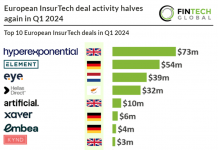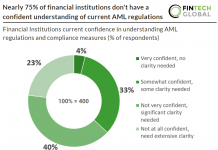Businesses risk losing over $20bn annually due to legitimate transactions being rejected as fraudulent, which could cause a serious dent in their coffers as they recover from Covid-19, according to new research from Checkout.com.
Moreover, the research suggested that merchants around the world could risk see nearly $13bn slip into the pockets of competitors as frustrated customers go elsewhere when the payments bounce back.
Oxford Economics conducted the research Checkout.com’s behalf. It surveyed over 5,000 consumers and 1,500 merchants for the research. It also conducted qualitative interviews with payments leadership from brands such as Microsoft, Uber, Airbnb, Deliveroo, TransferWise and Scribd.
Checkout.com, which recently became one of Europe’s most valuable FinTechs after securing a $5.5bn valuation, said that the research revealed that US businesses were the hardest hit, with them having lost $15bn last year due to legitimate transactions being rejected as fraudulent. It was followed by the UK missing out on $2.3bn, Germany losing $1.7bn and France that missed $1.3bn.
This is money businesses Checkout.com warns businesses can’t afford to lose as Covid-19 is predicted to cause an average global downturn of 6%. Moreover, the pandemic has caused more people to turn to online shopping, meaning that businesses risk losing out on even more money unless they plug that gap.
Interestingly, the research demonstrated that 65% of merchants don’t receive the data that tells them when, why and how customer payments have been declined, stopping them from even beginning to address their payment inefficiencies.
“The global economy continues to recover from the pandemic,” said Bradley Riss, chief commercial officer at Checkout.com. “The crisis has only accelerated the shift of commerce to digital. Now more than ever, merchants must be empowered to create better customer experiences and innovative offers that drive more business and capture more revenue.
“Payments are a source of amazing hidden value that merchants can use to unleash growth, but they need more actionable, granular data and better control to create the right solution for their business. They need flexible, modular payments solutions that can be built their way.”
Copyright © 2020 FinTech Global











